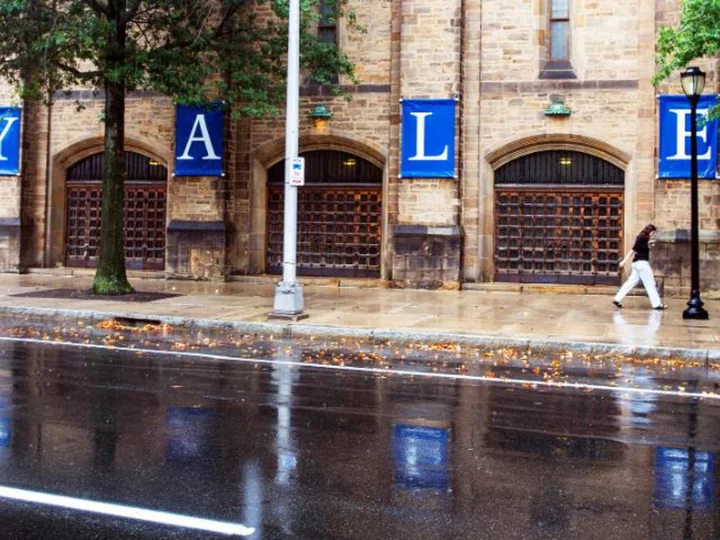Yale University agreed to settle a lawsuit alleging the prestigious university discriminated against students with mental health disabilities, according to a joint statement from the university and plaintiffs.
The lawsuit, filed in Connecticut federal court last November by current students and the non-profit Elis for Rachael, alleged the Ivy League school forced students to withdraw after they showed symptoms of severe mental health disability.
In the settlement agreement, Yale's undergraduate branch agreed to modify various university policies regarding mental health, including allowing part-time study for students with urgent medical needs and making it easier for students to return from medical leave. Many of these policies were implemented in January and the rest went into effect on Friday, according to a university spokesperson.
The settlement is not "an admission by either Yale or Plaintiffs as to any claim, cause of action, or issue of law," according to a copy of the agreement.
The agreement still needs to be approved by the court.
"Today is a watershed moment for anyone with a mental health disability, and for the entire Yale community," Rishi Mirchandani, the co-founder of the advocacy group Elis for Rachael, said in a statement Friday. The nonprofit's name references Rachael Shaw-Rosenbaum, a first-year Yale student who died by suicide in 2021 and had written about her fears of being forced to withdraw from the school.
"This historic settlement affirms that students with mental health needs truly belong," Mirchandani went on.
The Dean of Yale College said he was "pleased" with the agreement and noted that Yale has expanded student resources over the past few years.
"Students and alumni have shared constructive ideas with Yale administrators and clinicians, and my hope is that the changes that have emerged from these discussions will make it easier for students to ask for support, focus on their health and wellbeing, and take time off if they wish, knowing that they can resume their studies when they are ready," Dean Pericles Lewis said in a statement emailed to CNN.
The November lawsuit alleged that Yale officials pressured students to take "voluntary" leaves of absence for at least one or two terms when they experienced significant mental health symptoms by suggesting they would otherwise face an "involuntary" withdrawal. Students who withdrew from the university were barred from visiting campus and all campus activities without prior permission from the school, according to the lawsuit.
Under the terms of the settlement, Yale modified its medical leave of absence policy, in part by removing a mandatory minimum amount of time required to be away, according to the statement from Elis for Rachael. The university also "streamlined and clarified" the process of reinstatement and agreed to allow students on medical leave to have more access to campus, the non-profit's statement said.
"The new process prioritizes medical care and the student's ability to return as an equal member of the campus community," Elis for Rachael said.
In an email sent to Yale students, the university described "the most notable change" as "last year's creation of a medical leave of absence -- formerly a medical withdrawal -- that gives students more flexibility with health insurance, campus jobs, class registration, and other elements of student life."
The settlement also outlined steps Yale will take to ensure students and faculty are aware of mental health policies and resources, including training for university mental health professionals.
"Yale College will have in place a system to ensure a robust and meaningful exploration of reasonable accommodations, including accommodations to enable a student to meet essential academic requirements and remain safely in school," the settlement says.
Additionally, the lawsuit detailed instances in which students were required to be accompanied by a police escort to collect their belongings from campus housing after being withdrawn from the university.
Under the policy changes in the settlement, police will be present during these move-outs only if there's a danger to students' safety or a risk of disruption that no reasonable accommodations can reduce.

